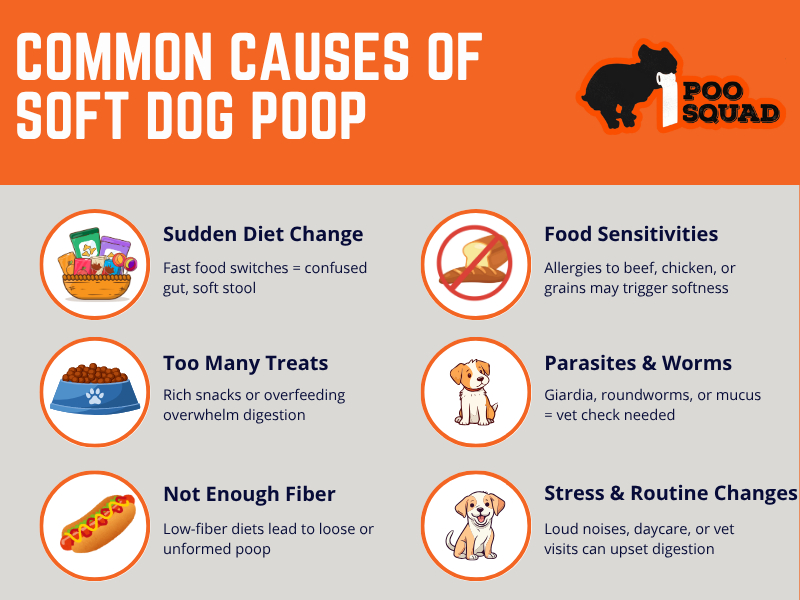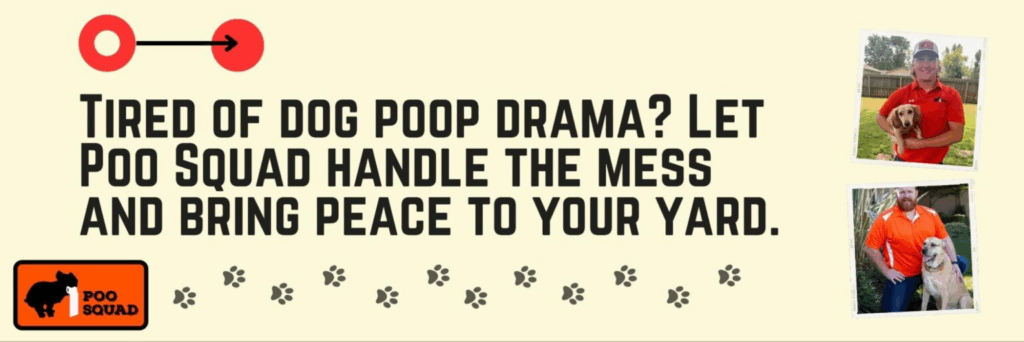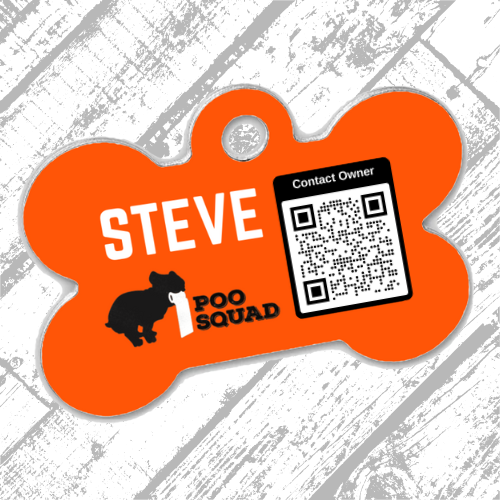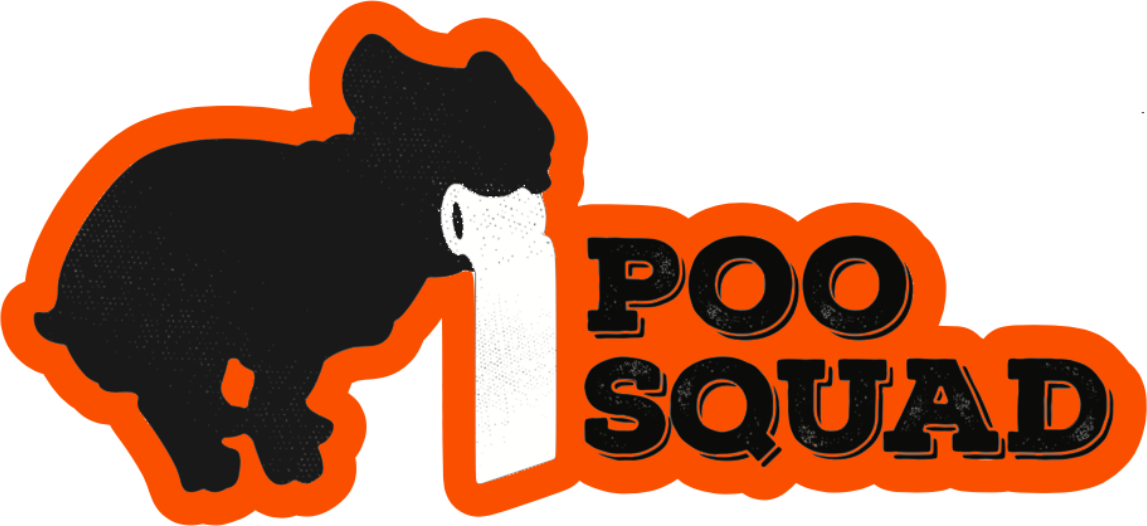Soft dog poop often results from sudden diet changes, food intolerance, stress, or parasites. While it’s not always serious, persistent soft stool, especially with mucus, blood, or behavior changes, can signal infection, gut imbalance, or illness that needs veterinary attention.

Soft dog poop usually means something’s off, whether it’s your dog’s food, stress levels, or a brewing health issue. It’s not quite diarrhea, but it’s not firm either: mushy texture, smears on pickup, and a consistency closer to pudding than pile. That kind of stool is not only harder to clean, but it’s often your first sign that your dog’s gut is struggling.
To make it simple, here’s what we cover in this guide:
- What soft poop means and how to tell it apart from diarrhea
- The 9 most common causes, from food changes to parasites and stress
- Fixes that work, like fiber, bland diets, and probiotic support
- Red flags to watch for that signal it’s time to call your vet
- Why poop texture matters for yard safety and dog health
- How we track stool patterns through our Poop Report Card service
Whether it’s a one-time squish or a weekly mystery, your dog’s poop tells a story. And we’re here to help you read it, one scoop at a time.
What Does “Soft” Dog Poop Mean?
When we say “soft,” we don’t mean a total blowout. Soft poop still holds its shape, but it’s mushy, smears on pickup, and doesn’t have that firm, easy-to-grab texture you hope for. It’s not quite diarrhea, but it’s also not a “good poop day.”
If you’re scooping regularly, or letting us do the honors with our residential pooper scooper service, you know what solid stool looks like: firm, segmented, easy to bag. Soft stool feels like wet clay. It spreads, sticks, and tells you something in your dog’s system is not quite right.
We call chronic softies “Pudding Pups.” It’s not an insult. It’s a red flag we keep an eye on, because poop texture is often the first hint of a deeper issue.

Common Causes of Soft Dog Poop
Not all soft stools are created equal. Some are temporary blips. Others are signs your pup’s gut is waving a white flag. If you’ve been noticing softer piles lately, one of these reasons might be behind it, and most of them are more common than you’d think.
1. Sudden Change in Diet
Changing your dog’s food overnight is a fast track to squishy results. Whether you upgraded their kibble or tried out raw, their gut needs time to catch up. A gradual shift over 7–10 days gives the digestive system a fighting chance to adjust.
2. Overfeeding or Too Many Treats
We all love spoiling our dogs, but too much of a good thing can turn their poop into soup. Overfeeding, especially with rich, fatty treats or table scraps, overwhelms the digestive tract. Portion control is not punishment; it’s poop protection.
3. Lack of Fiber
Fiber firms things up. If your dog’s on a mostly wet food diet or eating low-quality kibble, they might not be getting enough roughage. Adding pumpkin, sweet potato, or switching to a high-fiber formula can work wonders. (We’ve seen it firsthand.)
4. Food Sensitivities & Allergies
If the soft poop won’t quit, your dog might be reacting to something in their food. Common culprits: beef, chicken, grains, or dairy. An elimination diet, guided by your vet, helps ID the troublemaker. Patience is key, so is consistency.
5. Parasites & Worms
Roundworms, hookworms, Giardia, they love turning dog guts into squish factories. Puppies are especially prone, but adult dogs aren’t immune. If the poop is soft and weirdly colored, mucus-y, or your pup’s losing weight, get a vet involved. Stat.
6. Stress & Routine Disruptions
Ever get a nervous stomach? Dogs do too. Moving, vet visits, new people, loud noises they can all lead to soft poop. If your pup’s droppin’ pudding only after daycare or long walks, stress could be the silent saboteur.
7. Infections & Gut Imbalances
Soft poop paired with lethargy, loss of appetite, or vomiting might mean bacterial or viral infection. These aren’t “wait and see” situations. Thankfully, because we sanitize our tools and shoes between every yard, cross-contamination during cleanup is never an issue with us, and your pup stays safer.
8. Water Quality
Yes, even what they drink can make a difference. Tap water in some areas contains minerals that mess with gut health. Switching to filtered water has firm up stools for some pups. It’s a cheap fix worth trying.
9. Ingesting Something Weird
Crayons. Grass. Leftovers from the trash. You name it, we’ve seen it in poop. We call these dogs Poocassos, little artists leaving behind colorful, confusing piles. If your dog’s poop is soft and speckled with mystery, chances are they got into something they shouldn’t have.
When Soft Poop Is Normal (and When to Worry)
Not every soft pile deserves a panic attack. Dogs are like us; they have off days. But knowing when to breathe easy and when to call the vet can save you stress, money, and a lot of yard anxiety.
Harmless, Temporary Causes
A one-time squishy poop? Probably no big deal. Mild stress, too much excitement, or even a new treat can cause it. You might also notice softer stools in the morning and firmer ones later in the day; that’s often just overnight digestion doing its thing.
If your pup is otherwise acting normal, eating, playing, and keeping water down, give it a day and keep an eye on things. These are the soft poops that usually solve themselves, especially with a consistent diet and limited treats.
Red Flags That Need a Vet
If soft poop sticks around for more than a day or two, or it comes with these red flags, it’s time to make a call:
- Blood or mucus in the stool
- Black, tar-like poop
- Vomiting or dehydration
- Lethargy or loss of appetite
- Sudden weight loss
We’ve had clients send us gate photos asking, “Does this look normal?” Spoiler: it didn’t. That’s why our Dog Poop Report Card matters, when something’s off, we tell you.
It’s better to be the overcautious dog parent than the one who waits too long. Your dog can’t tell you what’s wrong. Their poop can.
How to Firm Up Soft Dog Poop at Home
If your dog’s poop is soft but there’s no emergency, you’ve got options. From dietary tweaks to gut boosters, these at-home methods can bring back those glorious firm piles, without the stress of endless vet visits or guessing games.

1. Try a Bland Diet (Temporarily)
Boiled chicken and white rice are not glamorous, but they’re a reset button for your dog’s digestive system. Simple, low-fat, and easy to digest, it gives their gut time to recover. Stick with it for 2–3 days before slowly reintroducing regular food.
Don’t jump between bland and regular meals, pick a lane and stay there until the poop shapes up.
2. Add Natural Fiber
Pure pumpkin (not the pie filling), mashed sweet potato, or a bit of oat bran can help bind loose stool. Start small, 1–2 tablespoons depending on your dog’s size, and monitor results.
We’ve even seen clients use pumpkin in their yard deodorizing routine when dealing with repeat “Pudding Pup” situations. Smart move. Less mess, less stink.
3. Support with Probiotics
Your dog’s gut needs good bacteria to stay balanced. A high-quality probiotic can do the trick, whether from supplements or plain, unsweetened yogurt (in moderation).
We’ve had clients ask: “Which probiotics work?” The short answer? One made for dogs. Don’t gamble on human blends unless your vet gives the thumbs up.
4. Keep Hydration in Check
Soft poop + low energy = time to watch water intake.
Offer plenty of fresh water, and if they’re reluctant to drink, a little bone broth or unflavored Pedialyte can encourage sipping without overwhelming their system.
And remember, hydration helps your yard too. Dried-out, under-hydrated poop is one thing. A muddy, sloppy mess? That’s a whole new cleanup challenge.
Special Situations to Watch Out For
Sometimes it’s not what your dog eats, it’s when or where it happens. These sneaky patterns can be easy to miss but make all the difference when decoding why your puppy’s poop suddenly goes soft. Here are a few real-world triggers to consider.
After a Walk or Playtime
If you notice your dog’s poop turns soft right after a walk or fetch session, you’re not imagining things. Physical activity can speed up digestion, pushing things through before they’re fully formed. If this happens regularly, try scheduling walks after bathroom breaks, not before.
We’ve also had clients mention yard excitement or over-sniffing turning into an instant squat.
At Daycare or Dog Parks
Lots of dogs. New smells. Stress. Shared water bowls. Sounds like a party, and a digestive risk. Soft poop after social outings is usually a mix of overstimulation and exposure to unfamiliar bacteria.
We always recommend bringing your water and keeping a close eye afterward. And if your pup’s daycare doesn’t have a sanitization plan like ours, it might be time to ask some questions.
When Home Alone or During Routine Changes
Separation anxiety hits dogs harder than people think. Being left alone, even for a few hours, can trigger nervous gut activity. New baby, new job, houseguests, all prime stressors. If the soft poop seems tied to your schedule, their stress might be the culprit.
Bonus: You can test this by checking gate times or requesting poop notes from our techs. We’ve flagged countless poop shifts tied to household changes, even when the owners didn’t realize it.
Why DIY Is not Always the Answer (And What Makes a Good Poop Service)
You can technically pick it up yourself, but should you?
Between soft stools, contamination risks, and the “I’ll get it later” trap, DIY poop duty often leads to bigger problems. A reliable cleanup service not only saves time. It protects your yard, your pet’s health, and your sanity.
Let’s Talk Contamination
We’ve seen too many folks mow over mush thinking it’s “fertilizer.” Here’s the truth: dog poop is packed with ammonia and over 23 million coliform bacteria per gram. That’s not feeding your lawn, it’s killing your grass and potentially seeping into local water systems.
That’s why we sanitize our tools and shoes between every yard. We never use your garden hose, never dump waste in your bins, and we always close the gate (with photo proof) before we leave.
Health Monitoring Included
You know what a random teenager with a scooper won’t give you?
A heads-up when your dog’s poop looks weird. We do. Our Dog Poop Report Card lets you know if we spot signs of illness, like mucus, blood, or the dreaded pudding pile.
You might not check your dog’s poop daily, but we do. And we know what to look for.
Identity You Can Trust

Every one of our team members wears bright orange and carries a scannable Poo Squad ID. That means you always know who’s in your yard, even if you catch them from the kitchen window.
Add in our automated billing and service reminders, and you’ve got a poop solution that’s truly hands-off, and head-of-the-pack.

Trust Your Gut (and Your Dog’s)
If your dog’s poop feels off, it probably is. You don’t need a vet degree to know something’s wrong, but knowing what to do next?
That’s where we come in. Pay attention, track changes, and never ignore those squishy piles that show up again and again.
Our team sees thousands of poop piles a month, and we’ve built our services around catching the subtle signs early. Whether it’s a Dog Poop Report Card flagging a health issue or a sanitized yard that prevents the spread of viruses, everything we do is about protecting your dog, and your time.
So yeah, you could keep guessing. Or you could let us handle the crap (literally) while you enjoy a cleaner yard, a healthier pup, and one less thing to stress about.
Frequently Asked Questions
Why is my dog’s poop always soft but not diarrhea?
Soft but formed poop often points to diet, stress, or minor gut imbalances. It’s not urgent, but it’s not “normal” either. Keep an eye on patterns, or better yet, let us track them with our Dog Poop Report Card.
Can soft poop mean parasites?
Absolutely. Worms like Giardia or hookworms love to mess with your dog’s digestion. If soft stool is persistent and your pup seems off, a vet visit (and a stool sample) is smart.
Will pumpkin help firm up my dog’s poop?
Yes, pure canned pumpkin is a go-to fiber fix. Start with small amounts and monitor results. It’s a natural way to help bind things up.
Is it normal for poop to be soft only after walks or daycare?
It can be. Excitement, stress, or physical activity can stir up your dog’s gut. If it’s consistent, it’s worth tracking. If it’s new, look for other signs of distress or infection.
When should I worry about soft dog poop?
If it lasts more than two days, comes with blood, mucus, or is paired with vomiting or lethargy, don’t wait, call your vet. We’ll alert you if we see any warning signs during your residential service.
